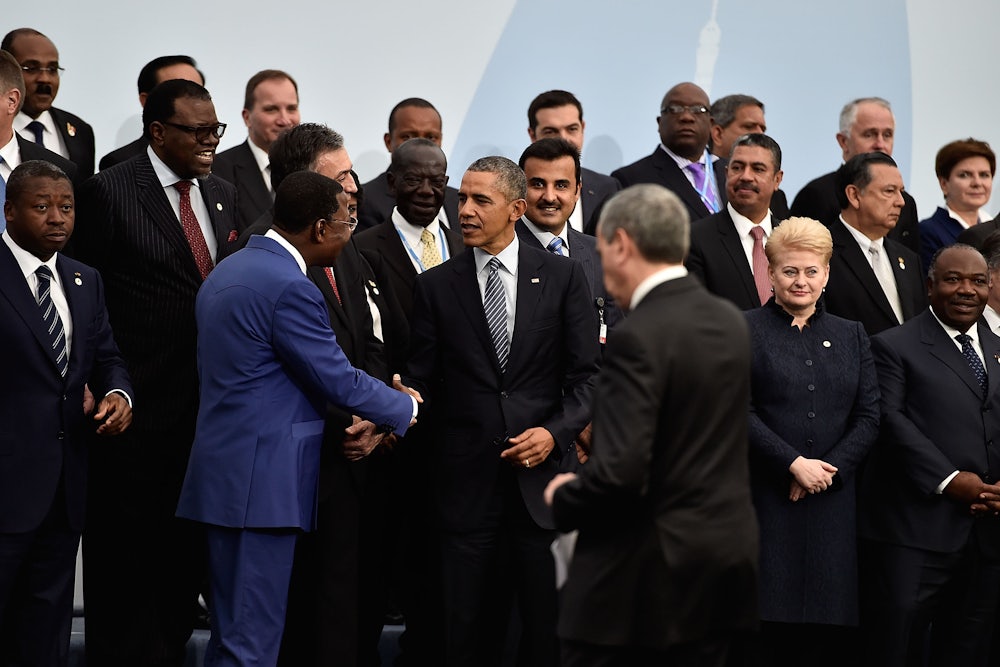The Paris climate talks (COP21), which began today, represent a critical moment for the world, on an issue that normally doesn’t see much progress. But there are a lot of reasons this year’s conference could be different. It’s why we’re putting together this newsletter for the next two weeks, to tell you what looks like progress and what looks like more delay and inaction on rising greenhouse gas emissions.
As part of our ongoing coverage of COP21, we’ll have a scorecard on daily developments, based on the keys for success outlined in our December climate change issue:
There’s a lot of work to be done to bridge traditional divides and indifference over addressing climate change, but—for once—there are some signs of overcoming them. On Sunday, more than 700,000 people worldwide took part in climate marches, after the movement faced a setback when the main Paris march was canceled due to security concerns. President Barack Obama was among the 150 world leaders who showed up on the first day of the talks, and he framed a successful climate agreement as an “act of defiance” against the terrorists who struck Paris in November.
Here’s a roundup of the biggest news from around the conference:
- Obama brought a message of hope in his speech Monday. (New Republic)
- Jonathan M. Katz, reporting from the conference, says most world leaders appear to be taking the threat of climate change seriously. (New Republic)
- A new poll shows that two-thirds of Americans support the U.S. joining a binding climate change agreement. (New York Times)
- But diplomats and CEOs no longer entertain the notion that an agreement inked by the club of the world’s largest emitters will ever be enough. (New Republic)
- Low-lying islands are preparing for the worst. Kiribati’s president says his home will become uninhabitable, and Fiji has stepped in to accommodate the Kiribati people. (The Guardian)
- In Beijing, dense smog, thick enough to obscure entire buildings, caused the government to issue its highest air pollution alert this year. Residents were advised to stay indoors. (New Republic)
- Bill Gates thinks the world isn’t funding enough clean energy R&D, so he’s stepping in with his own multi-billion-dollar fund. (New Republic)
- Wondering how much carbon will be emitted by all the diplomats, world leaders, and journalists flying to Paris? About 22 seconds of carbon dioxide to the global yearly total. (Wired)
- Tomorrow, the House Science committee is holding a hearing to discuss the “pitfalls of unilateral negotiations” at Paris, and Republicans are sure to air their many grievances. (House.gov)
- New climate emojis for Paris-related hashtags. (Twitter)
